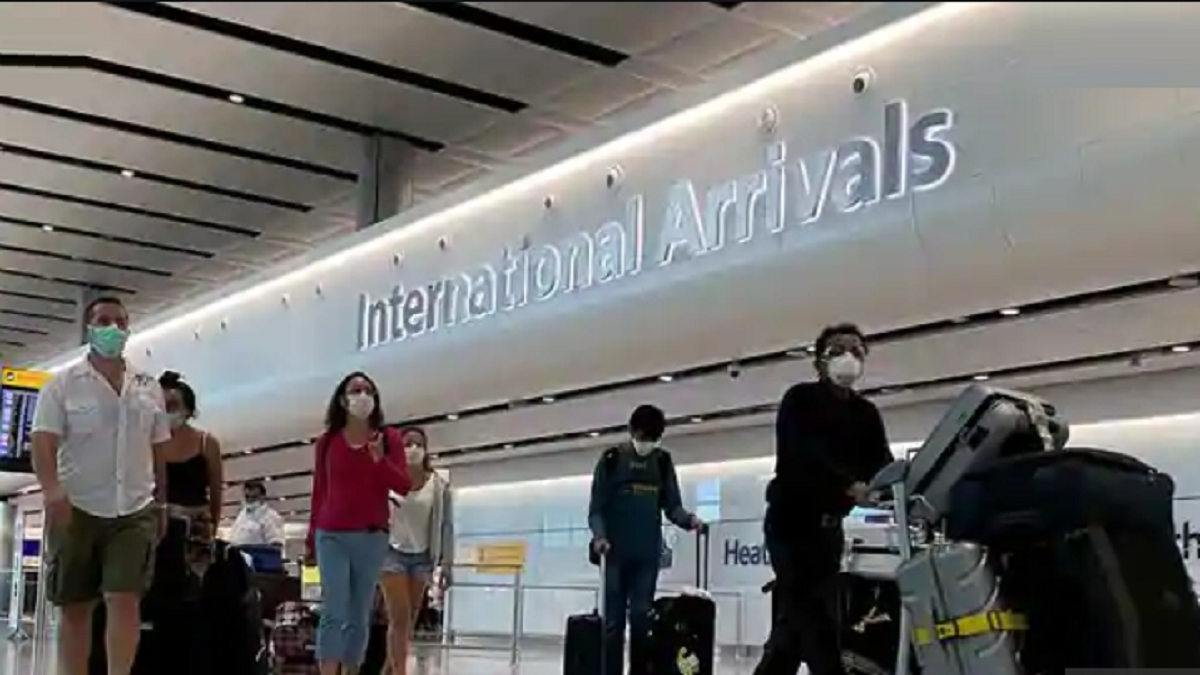The Ministry of Home Affairs (MHA) on Sunday issued new guidelines for international air passengers coming to India. The fresh guidelines supersede the one issued on 24 May, Air India tweeted. These guidelines are applicable from 8 August.
The aviation regulator DGCA has extended the ban on scheduled international flights to and from the country till 31 August. Earlier, overseas flights were suspended till 31 July. This restriction, however, does not apply to international all-cargo operations and flights specifically approved by the Directorate General of Civil Aviation.
As per the new guidelines, international travellers will be exempted from institutional quarantine on submitting a negative RT-PCR test report on their arrival in India. However, “this test should have been conducted within 96 hrs prior to undertaking the journey. The test report should be uploaded on the portal for consideration”, the guidelines say. Also, a self-declaration needs to be furnished, vouching for the authenticity of the test report.
All others need to give an undertaking on the portal that they would undergo mandatory quarantine for 14 days (7 days paid institutional quarantine at their own cost, followed by 7 days isolation at home with selfmonitoring of health).
All travellers are also required to submit a selfdeclaration form on the online portal at least 72 hours before the scheduled travel, according to the new guidelines for inbound international passengers. Before boarding a flight to India, not only is downloading Arogya Setu app on their mobile devices mandatory but at the time of boarding, only asymptomatic travellers will be allowed to board after thermal screening. The same set of rules will also apply to those crossing through land borders.
During travel, those who have not filled in the selfdeclaration form on the portal shall fill the same in duplicate in the flight or ship and a copy of it will be given to Health and Immigration officials present at the airport, seaport or landport. “Alternatively, such travellers may submit a self-declaration form on the online portal at arriving airport/ seaport/landport as per the directions of the concerned authorities, if such facility is available,” reads the new guidelines.
While announcements informing about the pandemic need to be made at airports, seaports or landports, precautions such as wearing masks are a must, says the Union Health Ministry.
Upon arrival, thermal screening would be carried out in respect of all the passengers by the health officials present. Thereafter, the self-declaration form filled online will need to be shown to the airport health staff. However, the passengers found to be symptomatic during screening will be immediately isolated and taken to a medical facility as per health protocols.
Post thermal screening, the passengers who have been exempted from institutional quarantine will need to show this exemption to the respective state counters on their cell phones/ other mode before being allowed home quarantine for 14 days. The rest will be taken to “suitable institutional quarantine facilities”, which will be arranged by the respective state and UT governments.
These sets of passengers will be kept under institutional quarantine for a minimum period of 7 days and they shall be tested as per the ICMR protocol. “If they are assessed as asymptomatic/ pre-symptomatic/very mild cases, they will be allowed home isolation or isolated in the Covid Care Centre (both public & private facilities) as appropriate,” says the guideline. But, those having mild/ moderate/severe symptoms will be admitted to dedicated Covid Health facilities.
Meanwhile, if found negative, they will be advised to further isolate themselves at home and self-monitor their health for 7 days. “In case any symptoms develop they shall inform the district surveillance officer or the state/ national call centre (1075),” it states.
With IANS inputs






